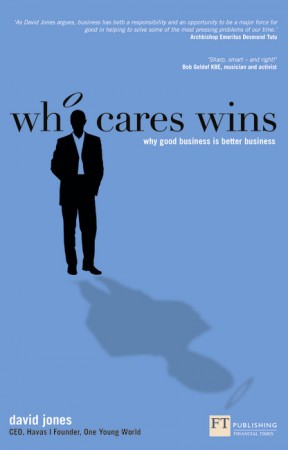Thanks, Ted. It's about time the Harvard Business Review recognized the important issues raised by the entrepreneurial renaissance of the past 10 years. Since you're the Review's editor, I guess you deserve the credit for opening up the magazine to a debate on the subject, and for letting George Gilder lead it off with his article in your March-April issue. He was most eloquent in showing how, and why, entrepreneurship has made the United States more competitive in the international semiconductor market. But as for your own column in that same issue, well that's another matter. . . .
1 OK, I suppose there is a thriving industry built around the entrepreneurial phenomenon. You may also have noticed that there's a much, much bigger industry that thrives on advising and chronicling the sparkling personalities who run our largest companies. The Harvard Business School practically invented it. You and your colleagues sit on big-company for the giants. Are we to conclude that your views on the role of large companies are, ipso facto, suspect?
2 Yes, Ted, some guides to small business are that trite, but no serious student of entrepreneurship suggests that success is either easy or certain. To paint all of them as simple-minded cheerleaders is like writing off Forbes, The Wall Street Journal, and the Harvard Business Review just because The One-Minute Manager and a host of kindred publications make fixing General Motors seem as easy as one, two, three.
3 Come on, Ted. To begin with, what economic proposition offers anything but "modest plausibility," from the forecasts of Chase Econometrics to the pronouncements of Federal Reserve chairman Alan Greenspan? And surely there is at least as much truth and plausibility in the work of David L. Birch and George Gilder as in the formerly fashionable hype of, say, John Kenneth Galbraith. You remember him. He's the sage who once wrote: "There is no more pleasant fiction than that technical change is the product of the matchless ingenuity of the small man forced to employ his wits to better his neighbor. Unhappily, it is a fiction. . . . A benign providence . . . has made the industry of a few large firms an almost perfect instrument for inducing technical change."
4 Ted, Ted, Ted. "Privileged few"? "Undistinguished many"? Even at Stanford, they wouldn't go quite this far. By "privileged few," you mean, I suppose, those who've been privileged to attend Harvard Business School, and other assorted denizens of the Fortune 500 boardrooms. But who do you include among the unwashed masses -- excuse me, the "undistinguished many"? Bill Gates? Steve Jobs? Don Burr? Tom Monaghan? Seymour Cray? Fred Smith? This is really too much, dear professor. It's no wonder that guys like poor Dick Nixon, the Whittier bench warmer, came to loathe the Harvard establishment.
5 Yes, it is. But it is easier, and more conventional, to exaggerate what big companies do, and what they've done in the face of new competition and a technological revolution. And what have big companies done lately? Lost jobs. Innovated less. Moved operations mindlessly, and prematurely, offshore. Failed to protect their markets. Kept their leaders insulated from reality (although that may be changing, thanks largely to the efforts of such financial entrepreneurs -- pardon the expression -- as T. Boone Pickens and the Hafts).
6 Now hold on, Ted. When it comes to imitativeness, lack of creativity, and aversion to risk, nobody can top your longtime friends at companies such as Procter & Gamble and NBC. I refer to you to The Bigness Complex, by economists Walter Adams (former Michigan State University president) and James W. Brock, who review numerous studies on the innovativeness of big companies: "Nor do giant firms display any appetite for undertaking more fundamental and risky research projects. That is, contrary to the image that bigness is conducive to risk-taking, there is no statistically significant tendency for corporate behemoths to conduct a 'disproportionately large share of the relatively risky R&D or of the R&D aimed at entirely new products and processes. On the contrary, they generally seem to carry out a disproportionately small share of [that] R&D. . . ."
7 Come, come. Condescension is one thing, but this is perverse. Of course, many start-ups fail. So do most new products from large companies. And, yes, companies -- as well as products -- often start out as "illusionary creations." A dream is illusionary by definition. To become reality, it must be modified again and again. Even then, it may come to naught. But without such dreams, there is no progress -- at IBM, at GE, or at Microsoft.
8 Watch it, Ted, you've just tripped. A couple paragraphs back, you were dismissing most start-ups for their lack of "exceptional enterprise or new ideas." Now, you're praising big companies precisely because they avoid exceptional enterprise and new ideas. So which is it -- bold is good, or bold is bad?
9 We all like to play the Big Numbers game, Ted, but these numbers are utterly meaningless. Nobody doubts that large companies spend a lot of money on R&D. The question is: what do they get, and produce, in return? All that spending hasn't kept the Fortune 500 from losing 2.8 million jobs since 1980. Meanwhile, the United States has gained nearly 10 million jobs over the same period, the vast majority created by small, growing companies. As a nation, we're getting a far better return on investments in entrepreneurship than on big-company R&D.
But we all know you can't win the Big Numbers game without producing a figure four times larger than the other guy's biggest number. So let me just add that, as impressive as IBM's $5.5 billion may seem, it is barely a quarter of the investment that new and ongoing businesses obtained last year from the "informal" capital network of aunts, cousins, dentists, and so on.
10 Finally, a simple statement of fact. Thanks, Ted.
11 On the contrary, there is precisely such a presumption. That's the whole point, Ted. We are in an era when the gazelles seem to have a clear advantage over the elephants. Markets are fragmenting. (Yes, I know, you are the grand doyen of "global branding," but hey, I won't rub it in.) Product cycles are shrinking. Competition is intensifying. And the technology of miniaturization is upon us. The elephants know what all this means, even if you don't. Why else would they be trying so hard to imitate gazelles -- downsizing, decentralizing, working overtime to make themselves look like collections of smaller companies? If you don't believe me, talk to your friends at P&G, Du Pont, Campbell Soup, and IBM, to name but a few.
12 Sure, Genentech grew fast, but it's still less than a tenth the size of Merck or American Home Products -- and doing just fine in the pharmaceutical big leagues, thank you. Anyway, I'm not saying there are no advantages to size. But there are also any number of inherent disadvantages, which we are just beginning to understand. These days, moreover, a midsize company can often achieve many of the advantages without the disadvantages -- by subcontracting, creative use of databases, strategic alliances, and so on.
13 Look, it's no big thing, but what you're saying here is: we bigger, Harvard-bred folk should really look out for the little folk -- give them a hand, or a ladder (to use your metaphor). It's all so nauseatingly condescending. Stop. Desist. We've had enough.
14 So you want us to shut up. Ted. You want us to stop "[discrediting] the large entities" that just happen to be so generous in their support of Harvard Business School, from which so many of their leaders graduated. And we're supposed to be grateful to these larger enterprises for "[producing] the capital and the markets that encourage and sustain new companies." You're saying the little guys, who create most of the jobs and do most of the innovating, are here courtesy of the big guys. Sure, Ted, right. Now tell us about the helping hand IBM gave to Control Data, Cray, Amdahl, Apple, Digital Equipment, Hewlett-Packard, Compaq, Sun Microsystems. . . . Isn't there some new best-seller about swimming with the sharks?
15 I suppose this is true, as far as it goes. But tell me, Ted: if company size is no big deal after all, why is HBR devoting its pages to a major debate on the subject? Of course, the "world's work gets done by all sizes of enterprise." What that statement overlooks are the real problems large companies are having because they are large, and the challenges they are facing from smaller companies -- which are producing better results with fewer resources.
Economies change, Ted. There have been long periods when predictability reigned, and large, stable enterprises thrived. But isn't it possible that we've entered a new era -- call it the Age of the Gazelle -- in which excessive bigness has become a handicap, while leanness and flexibility have emerged as advantages? There is much evidence to support such a view, not just in the United States, but in China, Belgium, Italy, Great Britain, and Spain, to name but a few of the countries where aggressive new companies are on the cutting edge of economic change. These days, even executives of large companies are questioning the advantages of size. Consider Don Povejsil, retired vice-president for corporate planning at Westinghouse, who recently stated that "most of the classical justifications of large size have proved to be of minimal value, or counter-productive, or fallacious."
That's why the Gilder article is so timely. Maybe you should go back and reread it. He makes a very convincing case that size is a profoundly important issue in today's economy -- an issue that can't be dismissed with platitudes about the need for companies big and small. via inc.com




